Have you ever wanted to learn what it’s like to work at the intersection of social justice and environmental sustainability? Join the Office of Sustainability on March 26th from 1-2:30pm ET to learn from a diverse group of experts in the environmental justice field as they speak on their career trajectories and how students can turn their passion into a career. The event will consist of a 40 minute moderated panel discussion, followed by breakout rooms in which students will directly engage with our panelists in small group Q&A sessions. Register for Professional Pathways Towards Environmental Justice today!
Our panelists include:
 Al Huang is a Senior Attorney in the Environmental Justice division of the Natural Resources Defense Council (NRDC)’s Healthy People & Thriving Communities Program. By utilizing a model that emphasizes community-led initiatives, Al litigates and advocates in partnership with low-income communities and communities of color throughout the country that are fighting environmental hazards. Al currently serves on the Environmental Justice Committee of the American Bar Association, is an adjunct professor of law at the Fordham School of Law, and is on full-time secondment with Coming Clean and the Environmental Justice Health Alliance (EJHA).
Al Huang is a Senior Attorney in the Environmental Justice division of the Natural Resources Defense Council (NRDC)’s Healthy People & Thriving Communities Program. By utilizing a model that emphasizes community-led initiatives, Al litigates and advocates in partnership with low-income communities and communities of color throughout the country that are fighting environmental hazards. Al currently serves on the Environmental Justice Committee of the American Bar Association, is an adjunct professor of law at the Fordham School of Law, and is on full-time secondment with Coming Clean and the Environmental Justice Health Alliance (EJHA).
Alexia Leclercq is a co-founder of Start:Empowerment (S:E). A graduate of NYU’s Gallatin School of Individualized Studies (’20), their concentration, titled ‘The Politics and Economics of Inequality’ combines the traditional fields of politics, environmental studies, and economics to understand the lasting effects of colonialism and perpetuation of structural oppression. Because of their personal experience of the climate crisis, and through their time working at PODER, environmental justice non-profit in Austin, they were inspired to take action and create a better world through politics, community organizing, and improving education systems.
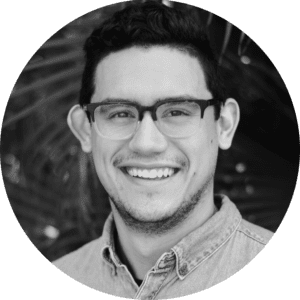 Bruno Estrada is a K-12 Environmental Educator & Workforce Instructor at SolarOne. Bruno is a Queens, New York native with Latino roots and is currently a Bilingual Environmental Educator. He found his passion for sustainability in 2014 after arriving in the Dominican Republic to be sworn in as a Peace Corps Volunteer. Since then he has traveled across South America exploring his roots and learning from permaculture experts, indegenous activists and community historians. He is one of the founders of Coalicion Latina de Educadores Ambientales because he believes that culturally responsive and equitable STEAM education is essential for a more sustainable future.
Bruno Estrada is a K-12 Environmental Educator & Workforce Instructor at SolarOne. Bruno is a Queens, New York native with Latino roots and is currently a Bilingual Environmental Educator. He found his passion for sustainability in 2014 after arriving in the Dominican Republic to be sworn in as a Peace Corps Volunteer. Since then he has traveled across South America exploring his roots and learning from permaculture experts, indegenous activists and community historians. He is one of the founders of Coalicion Latina de Educadores Ambientales because he believes that culturally responsive and equitable STEAM education is essential for a more sustainable future.
Kiersten Blake is a co-founder of Start:Empowerment (S:E). A graduate of NYU (’20), they studied International Organizational Development & Management and have worked on and lead multiple organizational sustainability, human rights advocacy, and educational policy projects and initiatives across five countries and on three separate continents. Because of their love of public service and social-environmental resiliency, as an Urban Fellow they contribute to the welfare of historically marginalized peoples for the city of NY.
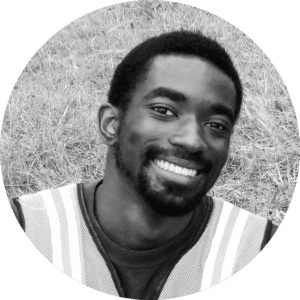 Patrick Owusu is a Solar Program Associate at SolarOne. Patrick joined Solar One’s Here Comes Solar program in 2019 to ensure low income housing residents know that green energy alternatives are not only available, but affordable and accessible. Patrick is a born and raised New Yorker from Washington Heights. While in school, he found a passion for fighting to improve New York City’s environment in ways great and small. Whether it was a campaign calling to keep NY fracking free, organizing waterside cleanups, or helping New Yorkers understand how to dispose of household waste with DSNY through City Service Corps, his track record shows a mind geared towards a sustainable future.
Patrick Owusu is a Solar Program Associate at SolarOne. Patrick joined Solar One’s Here Comes Solar program in 2019 to ensure low income housing residents know that green energy alternatives are not only available, but affordable and accessible. Patrick is a born and raised New Yorker from Washington Heights. While in school, he found a passion for fighting to improve New York City’s environment in ways great and small. Whether it was a campaign calling to keep NY fracking free, organizing waterside cleanups, or helping New Yorkers understand how to dispose of household waste with DSNY through City Service Corps, his track record shows a mind geared towards a sustainable future.

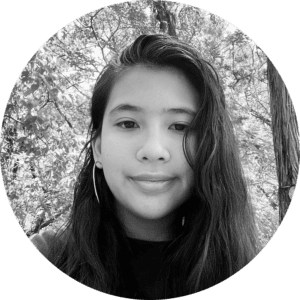
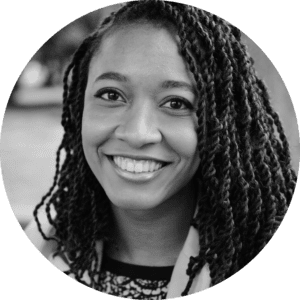
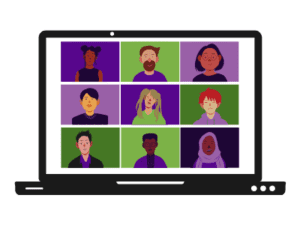 Learning, teaching, research, work, and travel can be a challenge during a global pandemic, but the changes we’ve all made have also added up to a record drop in global greenhouse gas emissions. It’s also caused a dramatic increase in the amount of time spent on Zoom, GoToMeeting, Microsoft Teams, or other virtual meeting platforms. A recent study
Learning, teaching, research, work, and travel can be a challenge during a global pandemic, but the changes we’ve all made have also added up to a record drop in global greenhouse gas emissions. It’s also caused a dramatic increase in the amount of time spent on Zoom, GoToMeeting, Microsoft Teams, or other virtual meeting platforms. A recent study